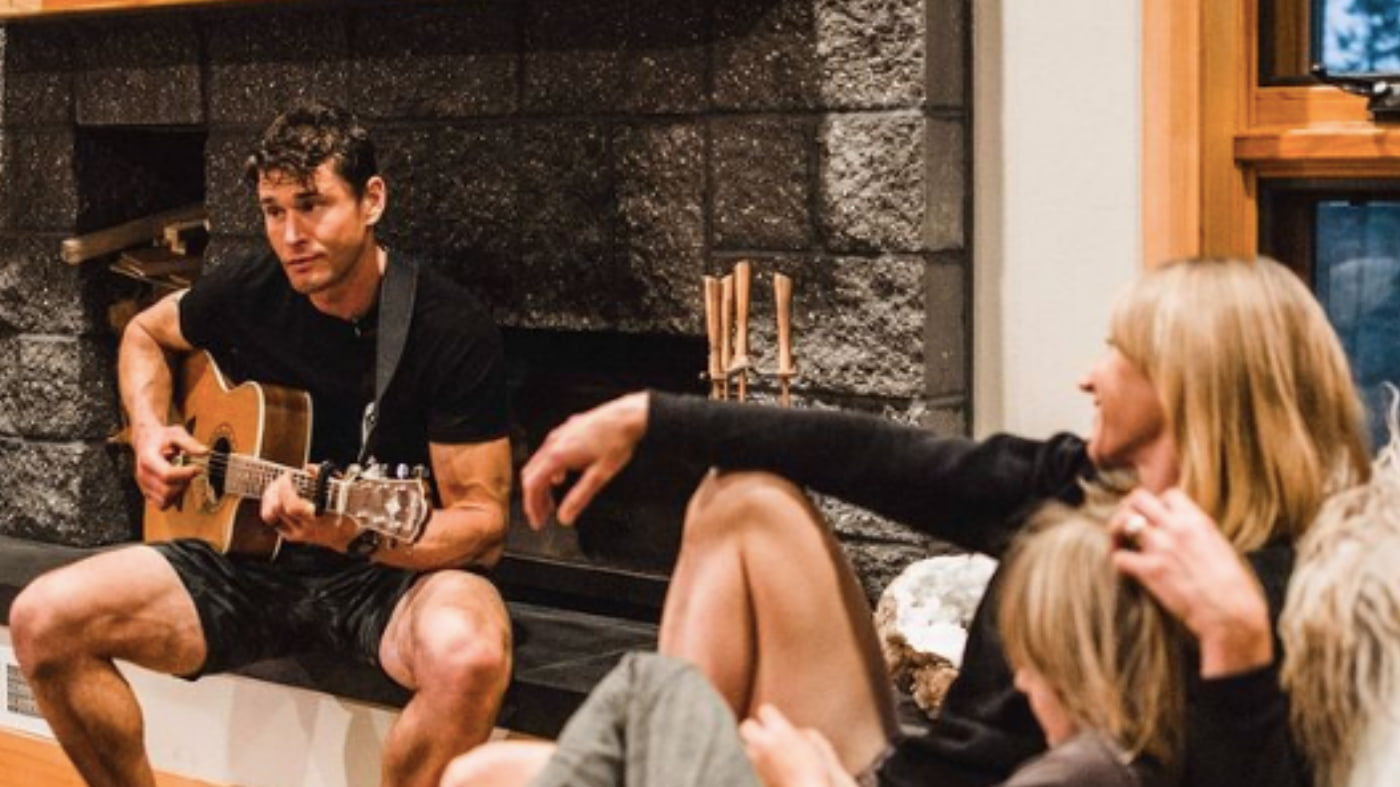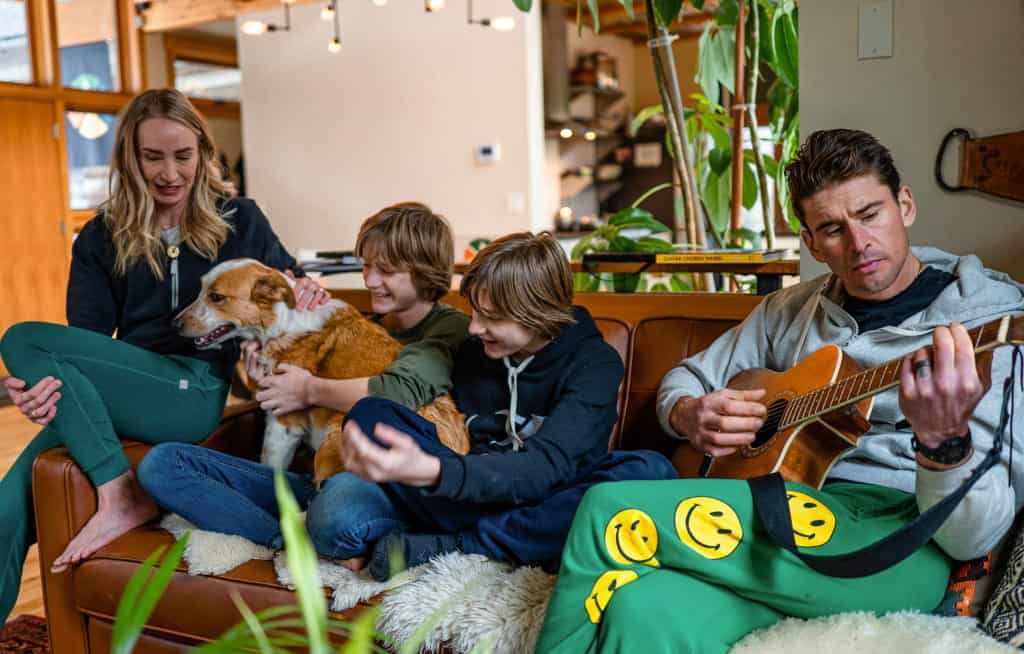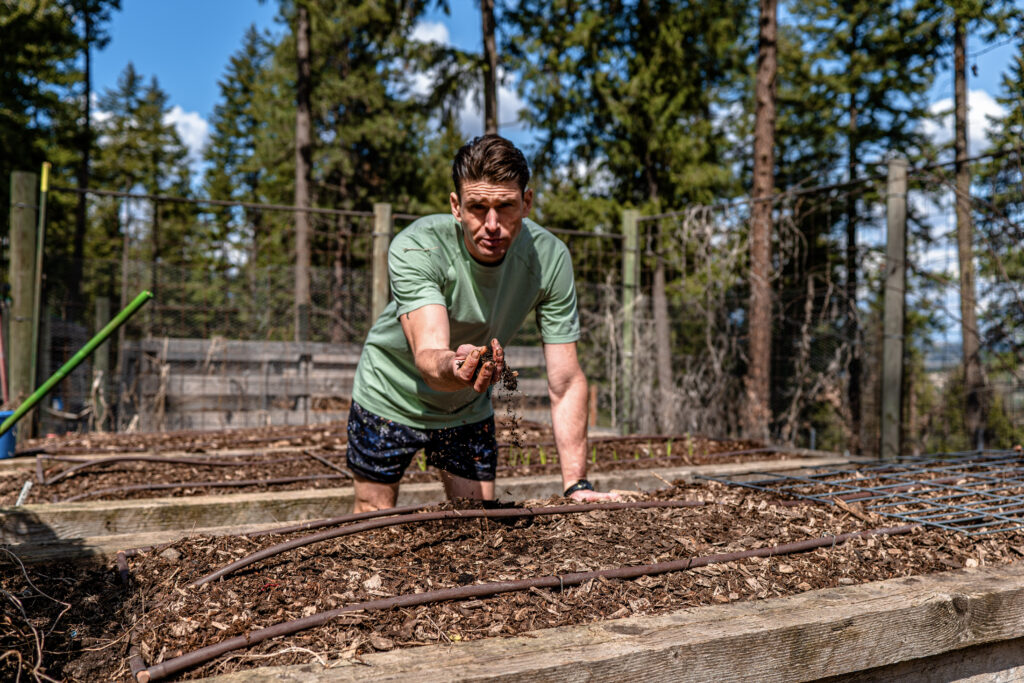September 19, 2021
On a recent Bay area trip, I was standing in the kitchen of a friend of mine—Dr. Matthew Cook—and the conversation turned to the concept of “free time,” which of course included the inevitable, common wishing that we had more of it, but also a sharing of what exactly we'd do with, say, 26 hours in the day, rather than the standard 24 (by the way, that “extra two hours” isn't just a random number, as a new study has noted that as free time increases, so does well-being, but the well-being levels off at about two hours daily and actually begins to decline after five).
So what did I personally name as those activities that I'd immerse myself in if I had more free time? They were, in no particular order of importance:
-Singing/songwriting
-Classical and acoustic guitar
-Handpan (also known as hang drum)
-Dry firing and shooting practice with my carbine and handgun (using skills I learned from my recent Sheepdog course)
-Bowshooting and bowhunting
-Volunteering and charity work
-Writing fiction
-Playing tennis
Now, of course, that's my list and I would imagine yours may vary quite a bit.
The whole concept of being more and doing less is of course something I've written on quite a bit in the past, including this post on Pixar's film Soul, this post on dreaming, singing, and dancing more, this post chopping wood and carrying water, this post on the breastplate of presence, this post on savoring life as if you were going to live forever, this post on sharing more experiences with others, this post on embracing boredom, and this post on ingesting beauty to create beauty.
After all, all work and no play makes Jack a dull boy, right?
All Work And No Play Makes Jack A Dull Boy
Perhaps you're unfamiliar with that witty little proverb about Jack the dull boy.
The saying first appeared way back in 1659, in James Howell's writings called Proverbs, and has since been included in a variety of subsequent proverbs and sayings.
Intuitively, it makes sense, right? We know that hard work and an industrial mentality are quite necessary to be meaningfully impactful with our purpose in life. Yet—as is often voiced by successful yet regretful executives later in their years or even on their deathbed—pure focus on work alone with a relative absence of recreation tends to make one dull and unsociable. Heck, one of the top five regrets of the dying is that people do indeed wished they'd worked less.
See, our mind’s constitution is such that it can engage in “deep work” for a certain period of time (according to neuroscientist Dr. Andrew Huberman, around an hour and a half before we need some kind of quick break), but at some point, both our mind and body need some kind of a “break” to keep us from being understimulated, becoming low on creative input or output and transitioning to a dull personality state.
Just think about the stereotypical “bookwork” child. Sure, they may be smart, informed, and productive, but they're hardly the most engaging social butterfly, and, in fact, may often be neglecting the fostering of social skills, dynamic and engaging personality traits, or even outgoing creativity mannerisms that go beyond being able to imagine math equations, grammar rules, poems, dragons, hobbits and fairies inside their head. In the same way, the busy executive who can make oodles of money with natural ease may often find themselves unhappy and unfulfilled if they're not taking breaks during the week for social tennis or golf outings, fun family dinners, or tossing a frisbee around the park (although as I write about in my book Fit Soul, even those activities can at the end of the day be unfulfilling unless paired with a belief in a higher power and some form of spiritual feeding).
Furthermore, in the same way that a good night of sleep allows for memory and learning consolidation, flushing of brain toxins and neuromuscular system restoration, periods of play woven into periods of work allow for much-needed daily mental rejuvenation, restoring our brain's capacity to return back to deep work or hard work.
So how much play do you need to keep from getting too “dull”? Based on my own personal experience and what I've seen in the type of research here, you'd most likely benefit from having at least two hours of unstructured free time each day, and, furthermore, I'd highly encourage you to make a list similar to the one that I made above so that when that free time strikes, you're less likely to be scrolling through an Instagram feed or Netflix selections, and more likely to be engaged in activities that, at the end of the day, will result in you feeling more fulfilled, more creatively stimulated, and more impactful.
Summary
Of course, it's not all play.
Indeed, some writers have added a second part to the proverb, as in Harry and Lucy Concluded, published in 1825 by the Irish novelist Maria Edgeworth, who wrote:
All work and no play makes Jack a dull boy,
All play and no work makes Jack a mere toy.
So don't be a dull boy.
But don't be a mere toy either.
Now it's your turn. In the comments section below, list all the things you'd do more of with two hours of extra free time each day. Then, think about tiny elements of your day that you could clean up to fabricate those hours, such as less television, less social media, more focused deep work with fewer push notifications, or learning to “say no more” (here's a great article about how you can do that), and see how many minutes you can actually free up. Leave your thoughts, feedback, and your own tips below. I read them all, and I can't wait to see your lists!














Ben, you should take a look at the comments section from your latest podcast with Matt Cook. Your credibility is at stake.
That’s fuckin nonsense. Your credibility is not at stake. Maybe what’s at stake is some yahoo subset of your following (in which case you need to start considering what you’ve attracted to yourself, just sayin). But you’re fine. Just be a man, act with integrity, follow god. You’ll get it right.